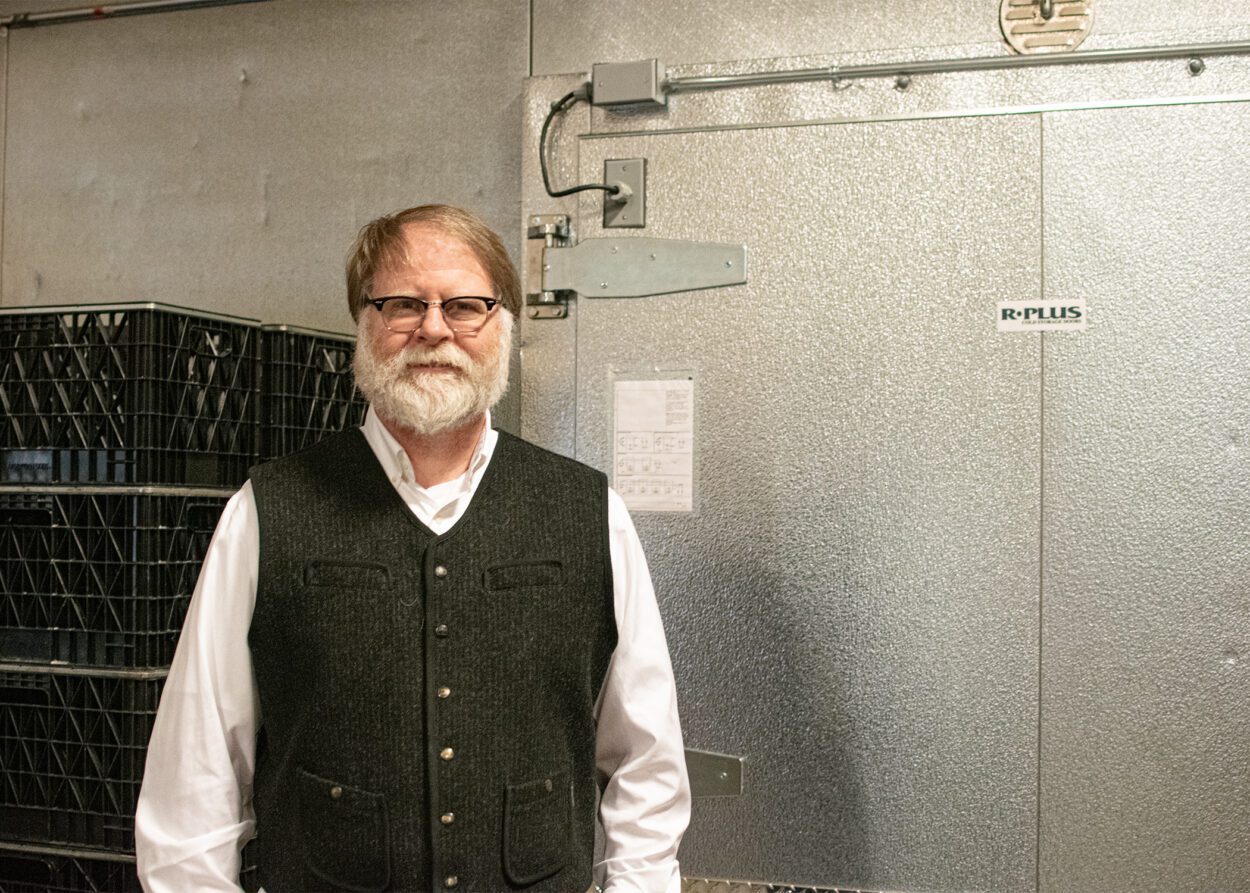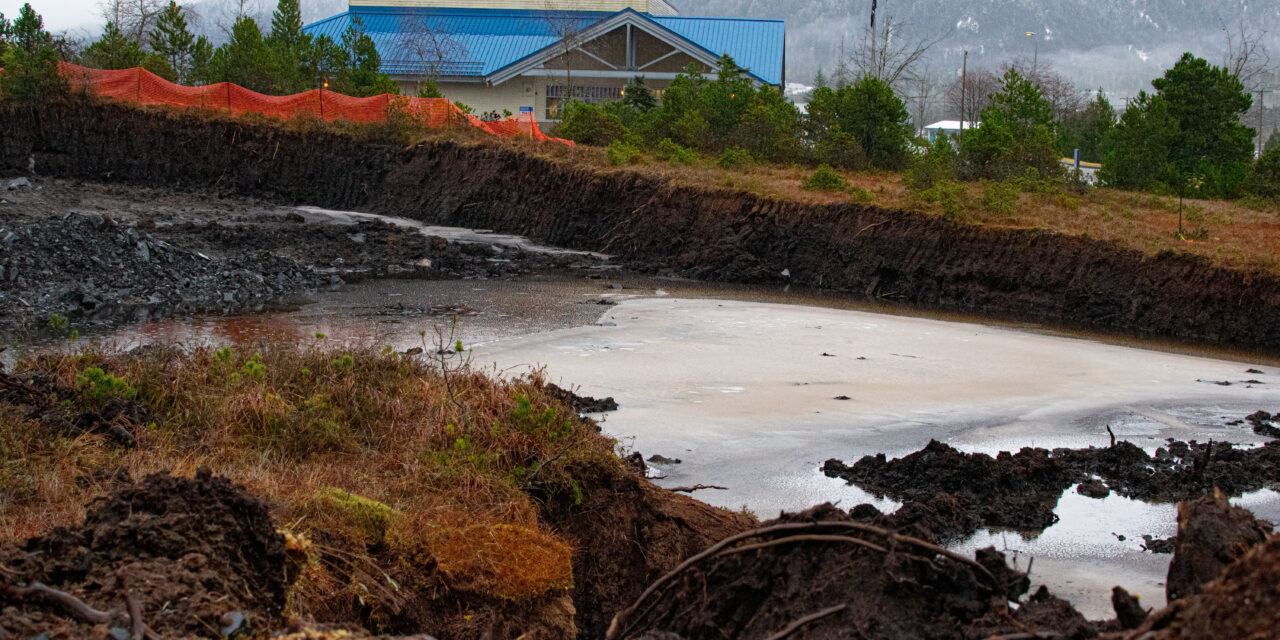A group of bulldozers sit in the muskeg beside Hammer and Wikan, the biggest grocery store in Petersburg. They’re on the edge of a giant hole that’s been there for a few months. KFSK’s Shelby Herbert dug in to find out what the store was planning.
Shelby Herbert: A deep crater has been collecting rain behind Hammer & Wikan, the biggest grocery store in Petersburg. Jim Floyd, the store’s CEO, plans to install additional storage space there to patch up a different type of hole — one in Petersburg’s supply chain. But Floyd says progress on the pit is … the pits. Days after the business broke ground on the storage project in October, there was a major landslide. The project’s construction team had to pivot and help clear debris from Mitkof Highway so utilities could be restored. Then came snow, rain, supply chain issues for construction supplies — and now, frozen ground, which makes it hard to dig. But Floyd is hopeful that construction will start again with the spring thaw. I joined Floyd on a tour of the worksite and spoke to him about the planned expansion.
Jim Floyd: So, this is the back stockroom in the grocery store.
S: The stockrooms are stacked with crates of produce, dairy products — even frozen breads. Some stacks nearly touch the ceiling. Floyd is worried the available space won’t keep Petersburg fed forever.
J: The challenge that we have right now is that even though we have some space up here, we don’t have adequate house space to house the merchandise that we have to build to handle week-to-week-to-week. Where we suffer the most is with refrigeration, freezer space, and dry storage.

S: What is your timeline for the expansion?
J: I’m hoping by spring. Right now, unfortunately, because of the frozen earth, they can’t do any work on it. I am going through the permitting process. I already had the engineers drawing, so it’s just a matter of getting that process done.
S: If we ever experience something that comes close to the supply chain disruptions of 2020 — is Hammer & Wikan prepared to meet the community’s needs?
J: So, honestly, that’s been my goal. The one area that we would have the most problems with would be dairy. Dairy has really short code dates and stuff like that. Produce, obviously, only will last so long. We should definitely be prepared.
That is the reason why we’re having to expand is because, right now, our storage space is not adequate. It’s not a matter of just being shorted because of the supply chain issues — it’s also the fact that we don’t have storage space. And that is why I’m currently in the process of doing this. I hope to build a warehouse out here, and then put additional refrigeration or freezer space.
S: Are there any other players in the game? Any competitors?
J: Yes, there is another place. Obviously, Trading Union does sell groceries and stuff. I am just going forward as if we’re the main supplier because we are significantly larger than them. They only get one delivery week. And so we have to be the prime primary provider — that’s the way I look at it. And we have to be prepared for something like that.
S: With the situation you’re in presently: you’re experiencing seasons of higher demand, and you’re trying to prepare for that. Does this situation drive the way you price the items you have for sale at the moment?
J: That’s not how it works — it’s a margin, a strict margin. We’ve had the same margin for years. So it’s a cost: shipping. And that’s how we factor our margins. It’s not a supply and demand issue. I just want people to realize realize that the employees work really hard. I just ask for a little patience because we are running into some severe shortages of products. Like, for example, everybody’s well aware of the egg shortage. We were just informed that our chicken load got cut. And produce. There’s lots of weather issues going down in California right now, and that’s going to affect our supply chain. And so it’s not the employees’ fault. They do a good job and there’s a lot of things that are just out of our hands.










